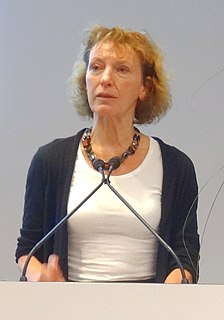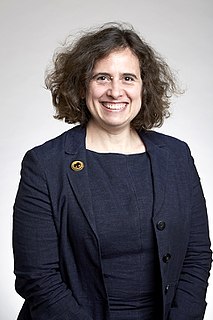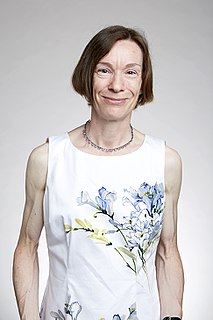
The European Molecular Biology Laboratory (EMBL) is an intergovernmental organization dedicated to molecular biology research and is supported by 27 member states, two prospect states, and one associate member state. EMBL was created in 1974 and is funded by public research money from its member states. Research at EMBL is conducted by approximately 110 independent research and service groups and teams covering the spectrum of molecular biology and bioinformatics. The list of Groups and Teams at EMBL can be found at www.embl.org. The Laboratory operates from six sites: the main laboratory in Heidelberg, and sites in Hinxton, Grenoble (France), Hamburg (Germany), Rome (Italy) and Barcelona (Spain). EMBL groups and laboratories perform basic research in molecular biology and molecular medicine as well as train scientists, students, and visitors. The organization aids in the development of services, new instruments and methods, and technology in its member states. Israel is the only full member state located outside Europe.

Sir Ian Wilmut, OBE FRS FMedSci FRSE is an English embryologist and Chair of the Scottish Centre for Regenerative Medicine at the University of Edinburgh. He is best known as the leader of the research group that in 1996 first cloned a mammal from an adult somatic cell, a Finnish Dorset lamb named Dolly. He was appointed OBE in 1999 for services to embryo development and knighted in the 2008 New Year Honours. He together with Keith Campbell and Shinya Yamanaka jointly received the 2008 Shaw Prize for Medicine and Life Sciences "for their works on the cell differentiation in mammals."

Sir Richard John Roberts is a British biochemist and molecular biologist. He was awarded the 1993 Nobel Prize in Physiology or Medicine with Phillip Allen Sharp for the discovery of introns in eukaryotic DNA and the mechanism of gene-splicing. He currently works at New England Biolabs.

VenkatramanRamakrishnan is an Indian-born British and American structural biologist who shared the 2009 Nobel Prize in Chemistry with Thomas A. Steitz and Ada Yonath, "for studies of the structure and function of the ribosome".

The European Molecular Biology Organization (EMBO) is a professional, non-profit organization of more than 1,800 life scientists. Its goal is to promote research in life science and enable international exchange between scientists. It co-funds courses, workshops and conferences, publishes five scientific journals and supports individual scientists. The organization was founded in 1964 and is a founding member of the Initiative for Science in Europe. As of 2022 the Director of EMBO is Fiona Watt, a stem cell researcher, professor at King's College London and a group leader at the European Molecular Biology Laboratory.

Michael Levitt, is a South African-born biophysicist and a professor of structural biology at Stanford University, a position he has held since 1987. Levitt received the 2013 Nobel Prize in Chemistry, together with Martin Karplus and Arieh Warshel, for "the development of multiscale models for complex chemical systems". In 2018, Levitt was a founding co-editor of the Annual Review of Biomedical Data Science.

Sir David Charles Baulcombe is a British plant scientist and geneticist. As of 2017 he is a Royal Society Research Professor and Regius Professor of Botany in the Department of Plant Sciences at the University of Cambridge.

Dame Caroline Dean is a British plant scientist working at the John Innes Centre. She is focused on understanding the molecular controls used by plants to seasonally judge when to flower. She is specifically interested in vernalisation — the acceleration of flowering in plants by exposure to periods of prolonged cold. She has also been on the Life Sciences jury for the Infosys Prize from 2018.

Tomas Robert Lindahl FRS FMedSci is a Swedish-British scientist specialising in cancer research. In 2015, he was awarded the Nobel Prize in Chemistry jointly with American chemist Paul L. Modrich and Turkish chemist Aziz Sancar for mechanistic studies of DNA repair.

Maria Leptin is a German developmental biologist and immunologist, and the current President of the European Research Council. She was the Director of the European Molecular Biology Organization from 2010 to 2021.

Sarah Amalia Teichmann is a German scientist who is head of cellular genetics at the Wellcome Sanger Institute and a visiting research group leader at the European Bioinformatics Institute (EMBL-EBI). She serves as director of research in the Cavendish Laboratory, at the University of Cambridge and a senior research fellow at Churchill College, Cambridge.
Robert Anthony Martienssen is a British plant biologist, Howard Hughes Medical Institute–Gordon and Betty Moore Foundation investigator, and professor at Cold Spring Harbor Laboratory, US.
John Tooze FRS was a British research scientist, research administrator, author, science journalist, former executive director of EMBO/EMBC, director of research services at the Cancer Research UK London Research Institute and a vice president at The Rockefeller University.

(Edith) Yvonne Jones is director of the Cancer Research UK Receptor Structure Research Group at the University of Oxford and a Fellow of Jesus College, Oxford. She is widely known for her research on the molecular biology of cell surface receptors and signalling complexes.

Anne Carla Ferguson-Smith is a mammalian developmental geneticist. She is the Arthur Balfour Professor of Genetics, Head of the Department of Genetics at the University of Cambridge and a Fellow of Darwin College, Cambridge.

Anne Jacqueline Ridley is professor of Cell Biology and Head of School for Cellular and Molecular Medicine at the University of Bristol. She was previously a professor at King's College London.

Andrew P. Carter is a British structural biologist who works at the Medical Research Council (MRC) Laboratory of Molecular Biology (LMB) in Cambridge, UK. He is known for his work on the microtubule motor dynein.
Leonid A. Sazanov is a professor at the Institute of Science and Technology Austria (IST). Sazanov research explores the structure and function of large membrane protein complexes from the domain of bioenergetics. These molecular machines interconvert redox energy and proton motive force across biological membranes using a variety of mechanisms.
(Thomas) Martin Embley is a professor at Newcastle University who has made contributions to our understanding of the origin of eukaryotes and the evolution of organelles such as mitochondria, mitosomes and hydrogenosomes, that are found in parasitic protists.
Ian Tomlinson is a director of the Institute of Cancer and Genomic Sciences at the University of Birmingham.














